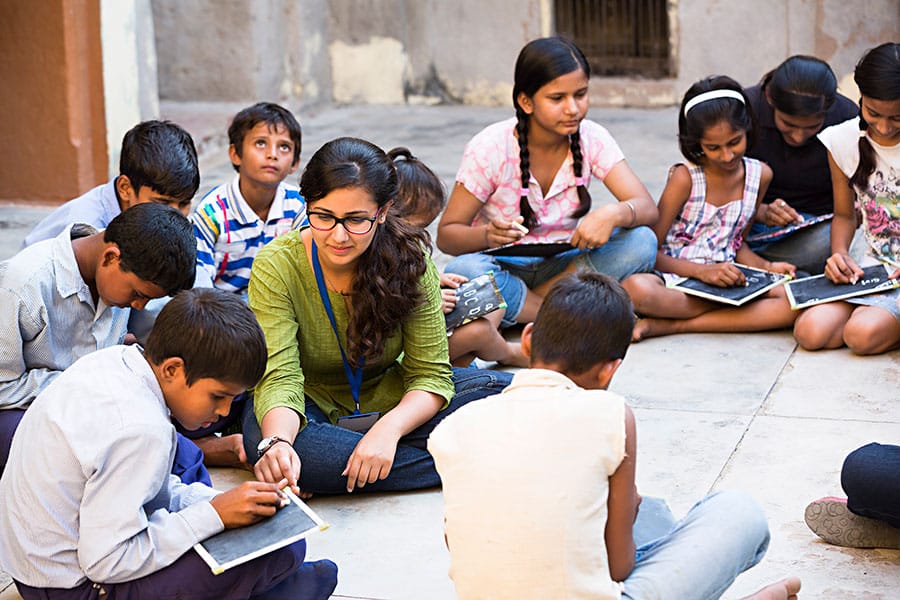WICCI Karnataka Child care Council conducted an event to beat exam stress for high schoolers in partnership with scoop on This blog shares the key points of this event.
Typical Teen
The discussion started with talking about a typical teen and developmental changes happening in their bodies, their emotions, their thought processes, their ideas and it’s all changing at different speeds and times. In this period, they strive for individuality, and the child does not want your help or suggestions when it comes to their homework and studies. But at the same time, they need support and they do crave that validation of academic performance from their parents and teachers. Strong family relationships are important for teenagers and hence the discussion with parents on this topic.
Development Phases in Teens
Neurological Development: During adolescence, the cortex is still developing in younger teens (ages 14-15), impacting decision-making, critical thinking, and impulsivity. This leads to a higher tendency for teenagers to be a little bit more hesitant when it comes to academics.
However, this developmental stage also presents a unique opportunity for growth and development, as the brain is highly neuroplastic during this period, constantly forming new neural connections. As a result, teenagers are capable of acquiring a vast amount of knowledge and skills, such as learning a new language, which can sometimes be easier for them than for adults.
Physical Development: During puberty, significant physical changes occur which can make adolescents more self-conscious and aware of their appearance. The timing of puberty can also have important physiological implications.
Emotional Development: At this stage, they tend to be very emotional, and sensitive. They have increased ability to perceive, assess and manage emotions. Influenced by cognitive & physical changes, context and environment. They observe increased sensitivity, mood swings, fragile self-esteem and sense of invincibility.
Social Development: This is the time when teens seek to establish identity and individuality. At this stage, they get heavily influenced by peers, popular figures, trends and what others think of them. They want to pursue independence, responsibility and new experiences and friends take precedence over family.
Moral Development: Forming a moral code, still needs time to process new ideas and ways of thinking. This is the time when there is a shift from black and white thinking to thinking in shades of gray and start to question right vs wrong and fairness vs unfairness.
Typical Challenges faced by Teens
- Academic Stress and Competition: Typical challenges that are faced by teens are academic stress and competition. Academic stress leads to a lot of other challenges that they face. Also in current times, competition has increased manifolds. This leads to a lot of anxiety and a lot of comparison.
- Stress due to Social pressures:It impacts their social relationships, being very best friends with one person, but the next day, when they score better than a friend, there is isolation that might happen, or there might be bullying and peer pressure.
- Bullying and peer pressure
- Experience low moods and self consciousness
- Heightened Emotions
- Gadget Addiction
Effect of Pandemic
The pandemic has had a significant impact on the behaviors of high school teenagers, with social anxiety being a common issue due to the lack of face-to-face socializing. The disruption of routine caused by the pandemic has led to concerns about teenagers struggling to get back on track with their daily routines. Gadget dependence has also become prevalent, with many using electronic devices as a means of escape from their current situation.
The pandemic may have also caused an increase in aggressive behavior or a desire to isolate oneself. Although some teenagers have returned to school, they are still dealing with the effects of two and a half years of behavior changes, which cannot be undone quickly.
This is a particularly overwhelming time for teenagers, as they navigate maintaining their social relationships and keeping up with their studies while dealing with the aftermath of the pandemic. Therefore, it may take a bit more time for teenagers to adjust to the new normal and return to their pre-pandemic behaviors.
Parenting Styles
There are 4 types of parenting styles but as a parent which parenting style seems closest to you? You may find that you don’t always fit neatly into one box here. Maybe you find that you draw from more than one type of parenting style and have two types of parenting styles that you go between. All the parenting styles go across two axis:
- The parent’s demand for the child: Expectations
- The parent’s response to the child: Responsiveness
Let’s discuss parenting styles with the above frame of reference:
- Authoritarian: An authoritarian parent would not engage in discussions with their child about their academic goals or expectations, as they believe they know what is best for their child. Communication is primarily one way, with the parent dictating what is expected of the child without any room for questioning or input from the child.
If the child does not meet the parent’s expectations, the authoritarian parent may respond with disappointment and punishment. This style of parenting can lead to a strained relationship between the parent and child, and may not be effective as children grow older and no longer respond to fear-based tactics.
While authoritarian parenting may work when children are very young, it is not a suitable approach for teenagers who require more autonomy and the ability to make their own decisions. The parent-child connection can suffer under an authoritarian parenting style, as the child may feel powerless and unheard.
- Permissive: The permissive parenting style is characterized by a desire to be the child’s friend and a reluctance to apply too much academic pressure on them. The parent emphasizes that their love for the child is not tied to their academic performance. This approach is low on demands but high on responsiveness to children’s needs.
One of the advantages of this parenting style is that it often fosters a strong bond between parent and child, where children feel comfortable sharing their thoughts and feelings with their parents. However, a major disadvantage is that children raised in permissive households may struggle to set goals for themselves, lack motivation, and be uncertain about expectations. - Neglectful or Uninvolved parenting occurs for various reasons such as parents being separated or divorced, one of the parents passing away, or both parents being occupied with their work and struggling to make ends meet. This type of parenting is characterized by low demand and low response. Parents do not follow up with the child and the child is left to their own except for basic necessities such as food and shelter.
After exploring all the parenting styles, it is possible to identify one’s own style and communication patterns with their child. This awareness can provide an opportunity to modify the parenting style if necessary.
How Parents Can Support Their Teenagers During Exam Time
Exam time can be stressful for teenagers, and parents can play a crucial role in supporting their children during this time. Here are some common issues that parents and teenagers face during exam time, and tips for how parents can provide effective support:
- Avoid giving lectures and constant follow-up: Parents may feel the need to constantly correct their child’s behavior during exam time, but this can be demotivating for the child. Instead, parents should set up fixed times for feedback and check-ins, and ask their child about their study plan and progress.
- Being solution-oriented: When a child comes to a parent with a problem, the parent may feel the need to immediately offer solutions. However, it’s important to first listen to the child, ask questions, and understand their feelings before suggesting solutions.
- Downplaying their emotions: Parents should acknowledge and validate their child’s emotions, even if they may seem irrational or exaggerated. Exam anxiety is a common issue that teenagers face, and parents should take their child’s concerns seriously.
By being supportive and understanding during exam time, parents can help their child navigate this stressful period and build their confidence for the future.









